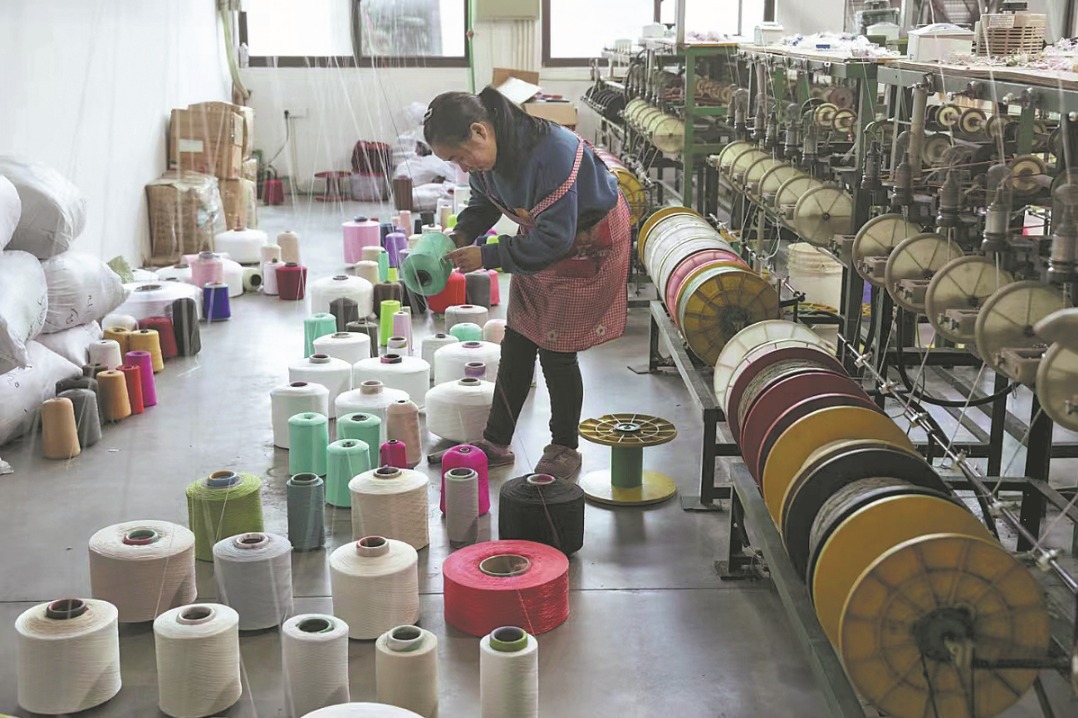From Davos to Boao, globalization needs boost at defining moment

BOAO — Over a year ago, President Xi Jinping vigorously defended free trade at the World Economic Forum annual meeting in Davos, impressing the world with China's staunch support for globalization.
That defense has become more relevant today.
Globalization, the historic process which has brought different countries and peoples closer over the past two centuries, is now under attack and regarded with growing doubts. Isolationism is rising, along with trade protectionism and economic chauvinism.
In particular, Washington's protectionist pivot is not only worrying, but damaging as well. Over the past year or so, it has tried to bully its trading partners into making concessions by wielding the big stick of punitive tariffs. What's more, the so-called "America First" doctrine touted by US President Donald Trump in Davos in January poses a serious challenge to the rules-based multilateral trading system once established by Washington itself.
At this defining moment when globalization desperately needs support, the annual Boao Forum for Asia conference is setting the stage for President Xi to further define China's stance.
There can't be any better venue. Boao, once a barely known fishing hamlet in China's southernmost Hainan Province, has today become one of the Asian country's gateways to the wider world with its annual global gathering that is gaining clout.
The emergence of this beach resort is but one example of China's rise from an isolated and underdeveloped country to the world's second-largest economy. The magic formula for this is China's opening-up to the outside world and becoming actively involved in the globalization of the world economy.
Ironically, the Western world where globalization originated has now become hostile to globalization in one way or another. Skeptics argue that globalization, which means free and open trade, is costing them their jobs at home and their way of life.
What's more, it seems that the policymakers in these countries are pandering to these sentiments, either because they too believe in the arguments or because they want to court votes. But those who rant against globalization tend to forget that the West remains the biggest beneficiary of economic globalization.
The rich countries boast the largest number of the biggest multinational corporations (MNCs), like Apple, McDonald's and IKEA. These MNCs have operations overseas, where operation costs are lower, to jack up their profits and then remit back the lion's share of that, leaving the assembly line workers in developing countries with only crumbs.
When Boao participants bring their iPhones to the forum, some calculations might be helpful before they head into brainstorming on globalization.
John Bellamy Foster, a professor of sociology at the University of Oregon, quotes the Asian Development Bank in his book "The Endless Crisis: How Monopoly-Finance Capital Produces Stagnation and Upheaval from the USA to China." He wrote, "Chinese workers that assemble iPhones for Foxconn, which subcontracts for Apple (in China), are paid wages that only represent 3.6 percent of the final total manufacturing cost (shipping price), contributing to Apple's huge 64 percent gross profit margin over manufacturing cost on iPhones."
But that's just money matters. Western powers' dominance of global institutions has brought them even greater payoffs. Following the end of World War II, the United States, along with its allies, has been leading the World Bank and the International Monetary Fund, the pillars of the global financial system. Indeed, the post-war world order is seen by many as an age of "Pax Americana."
So what has led to the rise of anti-globalization sentiments in the West? The key reason is the increasingly unequal distribution of the economic pie despite the fact that it is growing larger.
According to last year's World Inequality Report by the World Inequality Lab at the Paris School of Economics, the top 1 percent captured 28 percent of the aggregate increase in real incomes in North America and Western Europe between 1980 and 2016, while the bottom 50 percent received just 9 percent of it.
In the face of this widening wealth gap, politicians in some Western countries have failed so far to look inward in search of solutions. Instead, they look outside for scapegoats, blaming foreign countries for job losses and cashing in on domestic populism.
Though the path to globalization has not been a smooth one, yet the reality is that the world has become increasingly more prosperous thanks to it. So the right way to approach globalization is not to abandon or even try to reverse it, but to embrace and improve it.
China supports globalization because it has contributed to the well-being of its people. More importantly, improved globalization will benefit people around the globe. To make globalization more inclusive so that its benefits can be shared more extensively, Beijing has proposed the Belt and Road Initiative, and is asking others to join it in building a community with a shared future for mankind.
In sum, policymakers in some Western countries should pull their heads out of the sand to find better answers to their long-standing socio-economic problems and stay open-minded. This may not be easy, but it is necessary.
This year marks the 40th anniversary of China's reform and opening-up policy. On the occasion of the Boao forum, President Xi is expected to unveil a set of major new measures on reform and opening-up, according to Chinese Foreign Minister Wang Yi. It demonstrates that, despite rising anti-globalization sentiment around the world, China remains a staunch supporter and champion of globalization and a fairer world order.
The success story of the Chinese economy is a perfect reminder that the courage to push forward domestic reforms and embrace the outside world can lead to greater and more sustainable development. After all, globalization begins at home.
- China tightens oversight on platforms spreading financial misinformation
- China issues national dietary guidelines to curb rising obesity
- Artificial nests boost biodiversity of 'China's water tower'
- Survey: Strong cohesion among SCO members
- China launches cargo drone able to haul up to 1.2 tons
- Pricing guidelines issued for 28 medical services




































